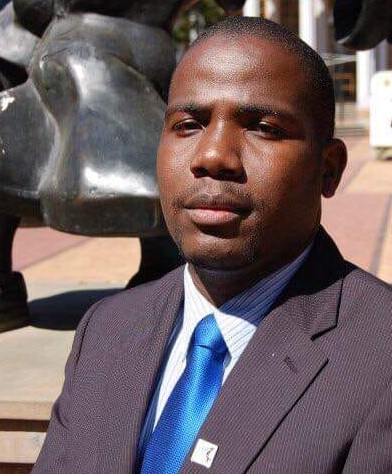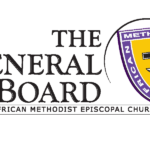By Mxolisi Vilakazi, Columnist
The African Methodist Episcopal Church has appropriated its valuable resources to train preparatory members into full membership of the Church. Membership in the Church is accepted in the local church but automatically becomes connected to the connectional church. However, membership connected to the connectional Church without agency, voice, and influence is dangerous to the continuous existentiality of our Bethel. The investment in membership training is important because church leadership in all its facets evolves from full membership grounded in the doctrine and discipline of the AME Church.
So, connectionally, all full members of the Church are taken through various modules, including the assurance of salvation, the articles of religion, the history of the AME Church, introduction to Christian stewardship, rules, and regulations of the AME Church as described in the Book of Doctrine and Discipline, introduction to the bible, the catechism of faith. This is undertaken to develop a full member aware of their rights and duties. This helps members to gain confidence in the transaction of Church business, participating in the church polity. For this reason, upon being accepted into full membership, a member is entitled to the rights and privileges of holding any office in the church, to vote, and to be voted.
Our Bethel is very important because before preparatory members are received into full membership, they answer some critical questions in the presence of the local congregation and, by extension, the entire connectional church. This includes the following questions, which are answered in the affirmation. Do you entertain friendly feelings towards all the members of this Church? Will you cheerfully be governed by the Doctrine and Discipline of the AME Church? When answered honestly, faithfully, and truthfully by all full members of the church – connectionally- these questions will mean our membership is of equal worth!
The general conference shall, therefore, be able, through its actions and decisions, to collectively answer the fundamental questions: Does the General Conference entertain friendly feelings towards all regions of the Church within our connection? Do all those who will be at the General Conference – at least, cheerfully be governed by the Doctrine and Discipline of the AME Church?
In answering these questions, the General Conference must appropriate to itself the task and responsibility to answer them honestly, truthfully, and faithfully: Does our Church membership have equal worth before the General Conference? Does the General Conference exhibit friendly feelings towards the entire units of the Connection?
These two questions are incubators of a protest for equal full membership worth across the Connection. This can be achieved when all church members, regardless of their location, economic situation, and original place of birth, can have equal agency, voice, and influence in the church polity. This will, therefore, question the very composition of the General Conference: Is it representative? Does it recognise all full members? Does it grant agency, representation, voice, and influence to all full members of the church connectionally?
The very composition of the General Conference gives other parts of the Connection more agency, voice, representation, and influence than others. In contrast, others continue to languish behind despite the already painful fact that they are ages behind the church. Take, for example, South Africa, which is 80 years behind the church, which means that for 80 years, or 20 General Conferences, our Bethel shaped its doctrine, discipline, rules, and principles without the voice of South Africa. It is reasonable that in the 52nd General Conference, the composition of the General Conference should favour those who have not been there for many years rather than have the same Annual Conferences, which are 20 General Conferences behind to have fewer delegations, resulting in a weaker agency, muted voices or voiced drowns in the crowd from district 1-13, misrecognition and poor representation resulting in the inability to influence the polity, legislative arena and leadership of the Church.
Equally, the General Conference should ask itself that in technological advancements, it is not possible to afford all full members of the Church – connectionally, to vote on legislation, vote for the leadership that they want, and vote for the Episcopal Committee Report. This will surely not be equity but will go a long way to unmute the muted voices, recognise the misrecognised full members in other parts of the connection, and grant full participation to those affected by the polity and decisions of the Church. It is painful to see delegates to the General Conference from South Africa turned into beggars trying to fundraise funds to attend the General Conference when technology can afford them to attend in their own homes or in their local churches or places as designated by their annual conference. This renders the General Conference, from the African perspective, an individual matter rather than a Conference of the Annual Conferences.
The question the General Conference should ask itself is, what must we do collectively to grant all our full members – connectionally, an equal worth in the transaction of the Church Business? Can we continue to proceed without properly listening and understanding the voices from Districts 14 – 20? How long must the Council of Bishops, the Judicial Council, and the General Board make decisions in the discussion table, with over 75% of the participants coming from Districts 1-13? How long must the Connectional Officers be over 95% of persons originating from Districts 1-13? How long must over 60% of the delegates to the General Conference come from Districts 1-13? For how long must the head office departments of the AME Church be occupied by members from only Districts 1-13?
We have an opportunity to use all available resources in the AME Church to recognise our full membership as equal worth and foster a culture where every voice matters and where every person owns a degree of agency, recognition, and influence. Every member must matter! There will come a time when we will need membership to rise, and they will be nowhere because of their perpetual exclusion.






Seems that we tend to inflict the same type of behavior that we complain about from others. Inclusion is necessary!
John Thomas what you raise in your article has been discussed in our little corners on the continent of Africa. We are constantly knocking on the door of INCLUSION but have to turn away every 4 years to re-assess what makes us less important to the General church. Our voices are silent by Episcopal leadership who fake that they have the interest of districts 14 – 20 at heart. In our meetings we are marginalised and silenced when we say that we are part of the global church but we do not grow beyond the preparatory class of church growth. Our appeals fall on deaf ears or land in file 13 because there is a belief that we complain about everything. Silent voices can become dangerous if that silence will break one day.